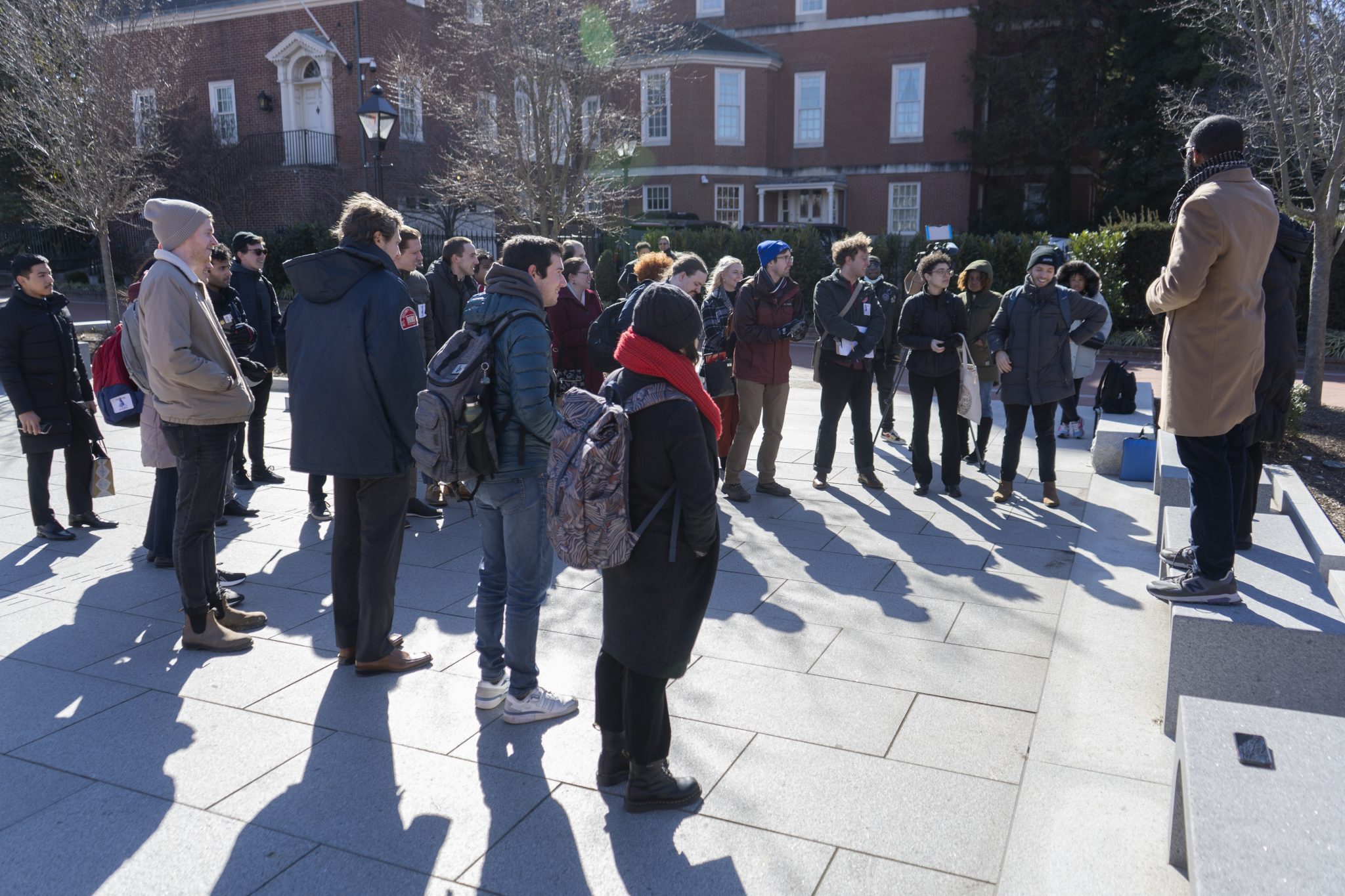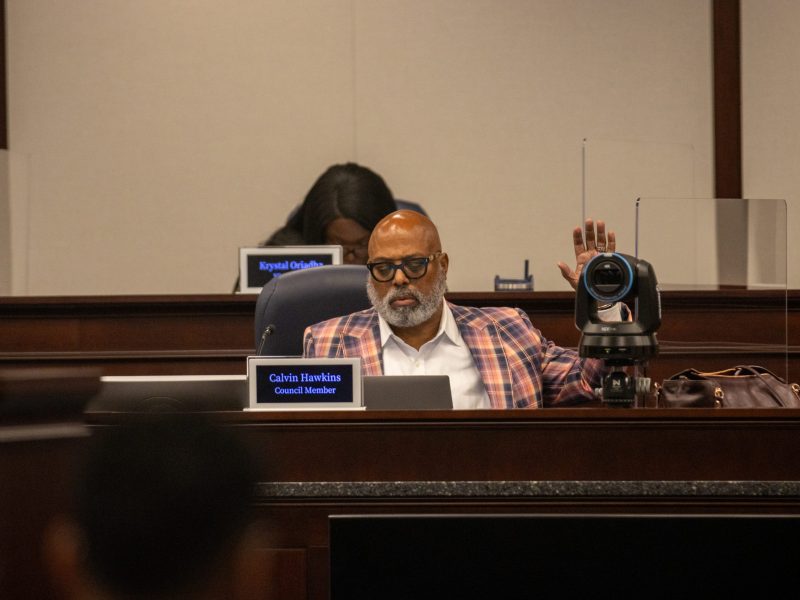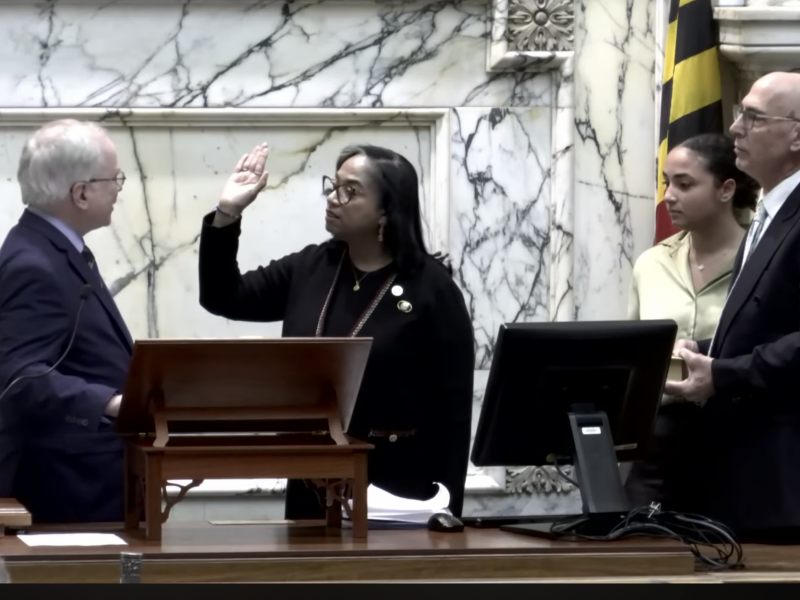University of Maryland graduate students and administrators testified to a Maryland General Assembly committee Tuesday on a bill that would give collective bargaining rights to certain instructors in the state.
The legislation would allow certain full-time and part-time faculty, postdoctoral associates and graduate assistants in the University System of Maryland, Morgan State University and St. Mary’s College of Maryland the right to form a union and negotiate on issues such as wages, hours and other employee benefits.
Del. Linda Foley (D-Montgomery) introduced the bill that was discussed at a House Appropriations Committee hearing on Tuesday. The bill comes as part of a push over the past several years from graduate workers at this university to secure collective bargaining rights.
“These academic workers are the only significant group of state employees who are prohibited from having a union contract,” Foley said in the hearing. “They have concerns that need to be addressed, and so they need the power of collective bargaining to do that.”
Foley previously sponsored a version of the bill that was introduced in the last legislative session but did not pass. The House bill’s Senate counterpart, sponsored by Sen. Benjamin Kramer (D-Montgomery), is scheduled for a hearing on March 7.
[Maryland legislators aim to ban legacy admissions post-affirmative action]
In her testimony, Foley pointed to the 2021 bill that allowed collective bargaining rights for community college faculty in Maryland. She added that some part-time faculty at community colleges teach the same courses at four-year schools.
“There’s no reason for faculty and other academic workers at Maryland’s four-year public colleges and universities not to enjoy the same rights as their counterparts at community colleges,” Foley said.
Several graduate workers and faculty members from University System of Maryland institutions testified in favor of the legislation.
Ivy Lyons, a journalism doctoral student at this university, highlighted the more than 2,000 graduate workers at the university who have signed a card supporting unionization.
“We have been working hard because we understand how difficult it is to be a teaching assistant, to be in the circumstances that we are at the University of Maryland,” Lyons said during the hearing.
Lyons added that ignoring collective bargaining is ignoring the will of the students.
Tom Abrams, a professor in the University of Maryland medical school, said unions could help handle instances of harassment or bullying. Faculty do not have effective means of handling instances of bullying or harassment, which, while rare, can be psychologically traumatic, Abrams said.
Abrams, who is a member of the University Senate and vice chair of the university system faculty council, added that women and underrepresented minorities, especially international researchers, are disproportionately affected by harassment.
“A union would provide an independent advocate for addressing this type of grievance,” Abrams said.
Several administrators from this university and the university system testified against the bill.
During the hearing, Alison Wrynn, the university system’s senior vice chancellor for academic and student affairs, said the duties a graduate student performs relate to their status as a student, not as a worker.
Stephen Roth, dean of this university’s graduate school, said that graduate assistants are students first, not employees.
“They are not hired under a typical employment process but are provided an assistantship as a way to financially support their education and professional goals,” Roth said.
[UMD graduate student group continues fight for collective bargaining rights]
Roth said that despite the testimony of others, the meet and confer process with graduate students — discussions between graduate workers and the university without the legal requirement of collective bargaining — is effective.
This university’s graduate assistant stipends are higher than many other publicly-funded peers’, Roth added.
The current minimum stipend for graduate assistants is $25,538 over nine months, for graduate students in a master’s program. Minimum stipends for doctoral students and candidates are higher, with the minimum stipend for a doctoral candidate with a 12-month term set at $35,384.
Roth also noted that graduate assistants receive the same health care benefits as faculty, and pointed to improving policies for issues such as mental health and parental accommodations.
Roth said a graduate worker union would limit the university’s ability to directly work with graduate assistants. Students’ relationships with faculty could become more focused on employment rather than mentorship, he said.
Rigby Philips, a history and library science graduate student and organizer with the Graduate Labor Union, said that a collective bargaining unit for graduate assistants would be entirely composed of students, so the university would “quite literally” directly work with them.
After the hearing, Lyons said that graduate workers are pushing for collective bargaining rights because they care about the university.
“We care about the institution. If we didn’t, we wouldn’t be doing this,” Lyons said. “We care about the state. If we didn’t, we wouldn’t be doing this. And we care about people who are going to be coming after us.”



